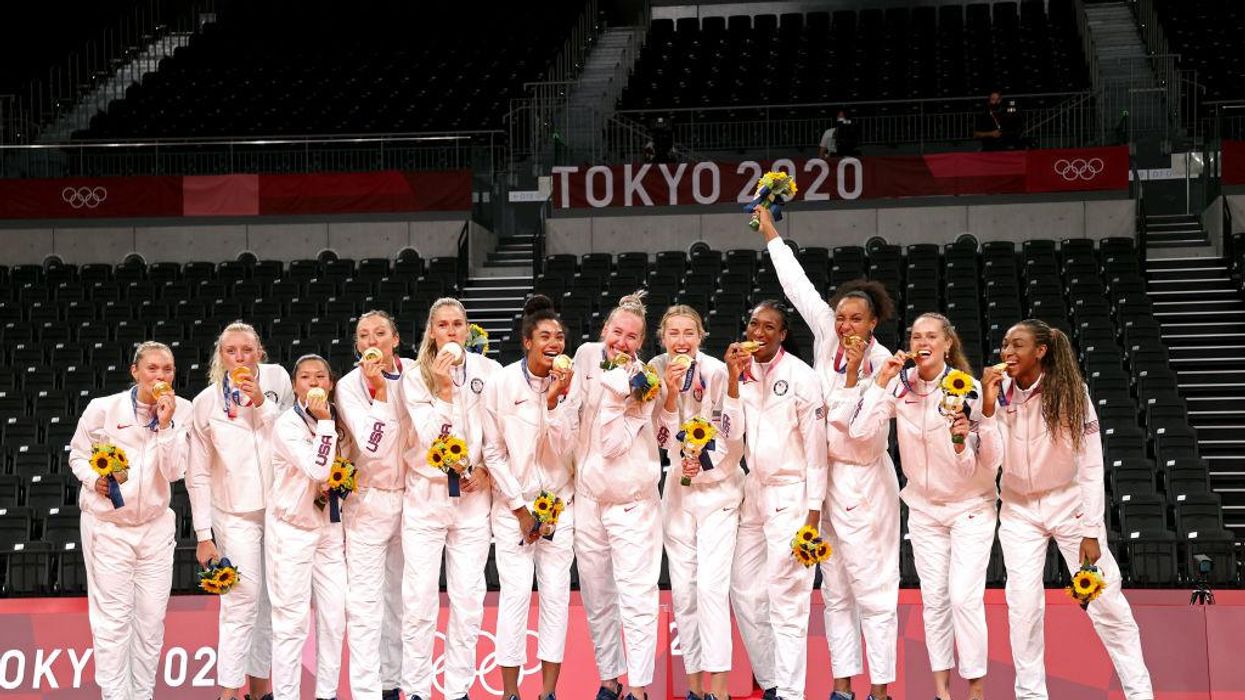
Toru Hanai/Getty Images

The Olympic Games are a reminder that America produces the strongest, most accomplished, and skilled women in the world.
With a gold-medal victory over Brazil on Saturday, the U.S. women's volleyball team pushed America past China in the race for gold. We won 39-38. We won the overall medal count 113-88 over China.
Our women led us to victory. Sixty-six of our 113 medals were won by women. The dominance of American women is not new. Our women have been outperforming our men since the 2008 Beijing Olympics. The performance gap is now widening.
It's an indication that no country on the planet has invested more resources toward the physical development of women than the United States. It's proof of the popular idiom, "you get what you pay for."
I am not complaining about the investment. Participation in sports is a great tool in promoting good health and strong leadership. The landmark 1972 Title IX legislation changed sports for women in a good way. Before Title IX, American women rarely participated in sports at the high school or collegiate level. Less than 2% of college athletic budgets were directed toward women.
Title IX changed that. The legislation — signed by former President Richard Nixon and co-authored by congresswoman Patsy Mink (D-Hawaii) and Sen. Birch Bayh (D-Ind.) — prohibited any school receiving federal funds from discriminating based on sex. The law caused a dramatic pivot in the way athletic departments spent their money. It did far more than open doors for women in athletics. It provoked financial investment.
Which brings me to my point.
Title IX is an outgrowth from the civil rights movement. The Civil Rights Act of 1964 inspired Title IX. The 1964 law prohibited sex-based discrimination in the workplace. The feminist movement quickly capitalized on the law's passage and sought equalize financial funding between girls and boys, men and women.
Women realized that access was great, but investment was better. Black people settled for access to white schools, neighborhoods, and businesses. We were uninterested in self-sufficiency.
Again, I'm not criticizing tennis star Billie Jean King and the other feminists who led the charge for Title IX. They were smart, strategic, and pragmatic.
Black people had the exact same opportunity in the aftermath of the Civil Rights Act. As I mentioned in a previous column, Daniel Patrick Moynihan, working as an Assistant Secretary of Labor in President Lyndon Johnson's administration, called for investment in the negro family in 1965. He wrote what would be called the "Moynihan Report," a five-chapter analysis of issues impacting black Americans. His report was titled, "The Negro Family: The Case for National Action."
Liberals, of course, labeled his work racist. The mainstream media smeared Moynihan and his assertion that America should invest in the black family in general and the black man in particular. After initially supporting Moynihan's report, President Johnson disavowed it after the media backlash.
Almost immediately, white female liberals started making their case for national action to promote women. That call for national action led to Title IX.
Let me repeat, I am not criticizing women for fighting for equal treatment. I'm simply pointing out that one group calls for strategic investment and another group calls for access (and reparations).
Fifty years of investment in women's athletics has produced remarkable results. Our women are the best in the world, and it's not really close. Strategic investment works. It prepares you for new opportunities. Unprepared people do not maximize opportunities.
Let's suppose women athletes had demanded access to participate in men's sports rather than the resources to get their sports up to standards. Where would they be today if they had begged for integration rather than independence? Would they be the most dominant athletes on the planet?
Moynihan observed that America needed to invest in the black family to get it up to standard. Once the family was up to standard, he correctly assumed the neighborhoods and schools would get up to standard.
With a shove from corporate media, black elites chose dependence and integration.
I'm not remotely pro-segregation. I just realize the worthlessness of integration without independence, self-sufficiency, and shared cultural values.
Jason Whitlock
BlazeTV Host